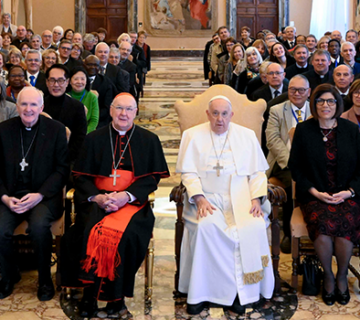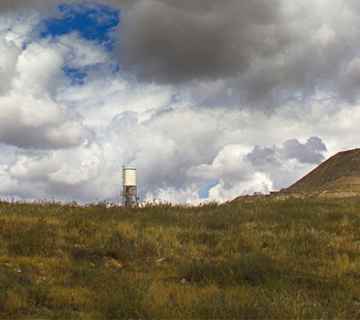 You have visited all the continents over the past few years, meeting with different cultures and social situations. You have had a close-up look at the Focolare communities spread throughout the world. In light of these rich experiences, could you tell us what you see as the main vocation of the Movement in the world?
You have visited all the continents over the past few years, meeting with different cultures and social situations. You have had a close-up look at the Focolare communities spread throughout the world. In light of these rich experiences, could you tell us what you see as the main vocation of the Movement in the world?
“It is a vocation to unity, a vocation to contribute at all latitudes, in different contexts and in different ways toward the realization of Jesus’ prayer to the Father: ut omnes unum sint (that all be one). This is the goal that each of us is called to, the imperative which is impressed upon each one of us who shares in the charism of unity (…).”
Before arriving in Slovenia, you visited Russia, the Czech Republic and Hungary, three significant countries of the “ex-Soviet-bloc”. What was it that urged you to take these trips?
“It is the same thing that urged me to visit Asia, Africa, North America and other European countries: the commitment to stay focused on relationships. My travels allow me to enter into a listening attitude and to grasp the problems and the riches of the peoples I meet, to appreciate their growth and to see where there is potential for development.
What are the ones I’ve found in these lands that for years have been built upon a Communist ideology? Chiara Lubich always saw a special calling to unity in this area of the world, precisely in response to the forced unity that characterized these countries. In 1989, just after the crumbling of the Berlin Wall, Chiara saw those historic events as a great step toward unity. Within the process, however, the positive values that were present in that society up until then should be safeguarded: the yearning for unity, a global vision of the world, attention for the poorest classes, exaltation of the human person’s propensity to be social. Grand ideals, but often blatantly contradicted by the facts. She seemed to understand that the charism of unity, which the Holy Spirit had given to her, had a contribution to make in returning those ideas to their original source and rooting them there: in God.
(…) Unity could really become the distinguishing mark of this region in particular. For if it is lived in God, the greater the diversity, the more extraordinary the experience of unity that is derived. I had an anticipation of it last summer during my voyage in Croazia, in which I met a group of the Movement’s members who came from different geographic and cultural regions: a single people comprised of many peoples, united in the name of God and living for unity (…).”
 IThese years we are witnessing growing polarization in Slovene society that undermines the relationship between the Church and the secular world. It sometimes erupts in a certain intolerance. How can this wound be healed and how can we help to restore true values to the world we live in?
IThese years we are witnessing growing polarization in Slovene society that undermines the relationship between the Church and the secular world. It sometimes erupts in a certain intolerance. How can this wound be healed and how can we help to restore true values to the world we live in?
“I think that we must above all believe and bring forth all that is good and profound in every human soul. Believers and non-believers alike, hold to certain values that are within them. It’s a matter of highlighting what is positive in each person and find ways to build bridges with everyone. The charism of unity that we strive to practice has a force and light within it that goes beyond each one of us. (…). Then I believe that these values can be offered through personal witness and the witness of the community: the value of life, of the human being, of the family. . . These are values that God places within us and which should shine forth from our life, and be quite compelling. Finally, I believe in the importance of offering your own opinion, but freely, with detachment, with respect for others. In other words, as a gift of love.”
Entire interview by Irena Santoro – Source: Novi Svet


 Italiano
Italiano Español
Español Français
Français Português
Português


